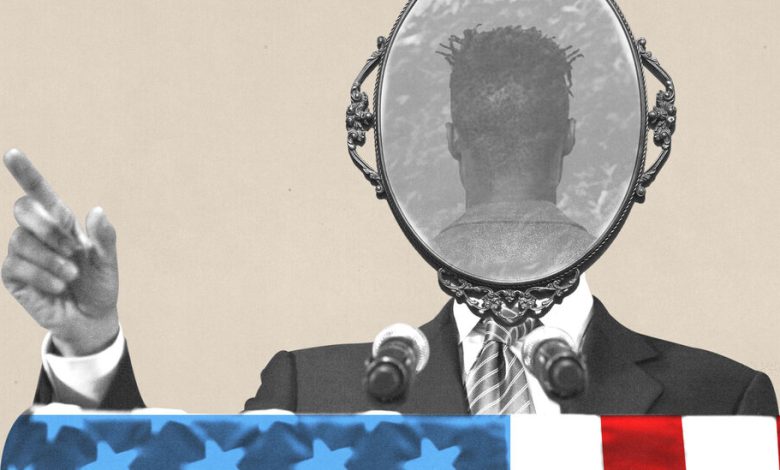Obama, More Than Dickens, Looms Over This ‘Great Expectations’

GREAT EXPECTATIONS, by Vinson Cunningham
As much as I pretend that I’m too conscientious, too emancipated, too Black and mostly just too lazy to succumb to a cult, the aesthetic choices I made in 2008 — when a distressed white tee featuring Shepard Fairey’s rendering of Barack Obama was an essential part of my wardrobe — remind me I ain’t that special. Still, I had company. “Great Expectations,” Vinson Cunningham’s brolic and dazzlingly written debut novel, transports us to that time, when America’s most valuable commodity was proximity — real or perceived; burgeoning or dimming — to the soon-to-be president.
Cunningham, a staff writer at The New Yorker who worked, in his 20s, on the Obama campaign and in his White House, ferries us through a year in the orbit of an Obama-like figure known to us only as the Senator and then the Candidate. (And let’s get this out of the way: “Obama-like” is a misnomer. This isn’t an interpretation, like Jeff Bridges’ Clintonesque Jackson Evans from “The Contender” or even the Clinton-adjacent Jed Bartlet on “The West Wing.” Dissimilarities between the fabricated Candidate and the flesh-and-blood Obama are nonexistent.)
And maybe “ferries” is the wrong word, too, because “Great Expectations” moves, in 249 quick pages, with propulsive energy, pausing the barnstorm to consume and deconstruct the sights along the way.
David Hammond is brilliant but rudderless, a college dropout and single dad thrust into the Candidate’s circle thanks to the elusive, shrewd and (increasingly, as the book continues) sexy Beverly Whitlock — a benefactor-slash-rabbi-slash-whoever-the-hell-she-wants-to-be, with one of those nebulous finance gigs where you’re never quite sure how they make all that money but always dead certain they wouldn’t hesitate to bury you with it. We’re quickly introduced to staffers and canvassers; to fund-raisers and their targets; to celebrity academics and scions of music moguls, all thirsty to be validated.
Cunningham captures the grind and the mundanity of the campaign with precision and humor, and via the incorporation of staff-specific shorthand. “Airplane rules,” David repeats to a crowd waiting in line to pass through the Apollo Theater’s metal detectors.
A supervisor later reminds him to look at the audience’s faces, and not the Candidate’s, at speaking engagements, to better know “which ones you could ask for a check.” Cunningham answers myriad questions I’ve always had, but never asked, such as “Where do young staffers sleep when stationed in new cities?” (Trailer parks, highway motels — anywhere with a cheap and friendly bed.) And: “How often do they hook up?” (Define “often.”)
